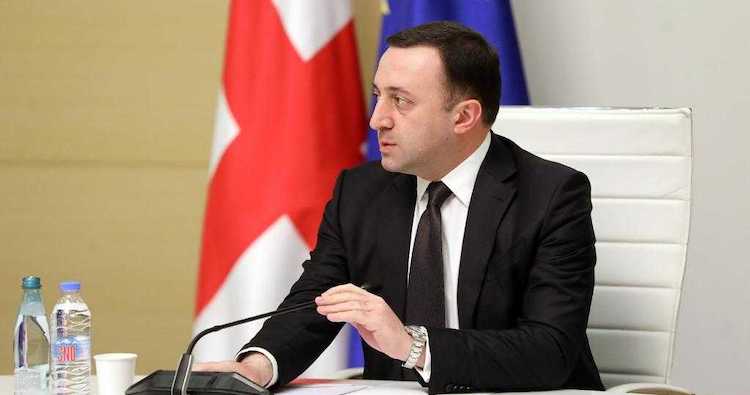Gov’t to continue “national, pragmatic and peaceful” policy to ensure reconciliation with Ossetians, Abkhazians - PM

Garibashvili said there was “an absolutely realistic” chance for the sides to “unite,” adding his Government needed “sensible policy and development” to be “reunited” with citizens in the occupied regions, and noting the course had “no alternative”.Photo: Government's Administration.
The Georgian Government “must be able” to ensure reconciliation with Ossetians and Abkhazians through a “national, pragmatic and peaceful” policy, Prime Minister Irakli Garibashvili told reporters in the central Georgian city of Gori on Saturday.
Speaking during his weekend tour of regions to inspect ongoing infrastructure projects, Garibashvili said the Government had inherited the Russian occupation of its Tskhinvali (South Ossetia) and Abkhazia regions from the previous ruling party, and highlighted the “daily challenges” of the occupation, including detention of Georgian citizens by de facto authorities along the occupation line and their transfer to confinement in the occupied territories.
The PM said the actions by occupation forces were followed by “immediate response” from the Government, with the help of the European Union Monitoring Mission deployed along the line to observe developments.
He also highlighted the occupation had been “triggered by a senseless war and provocation that could have been avoided in 2008,” pointing to the conflict having led to a loss of “a lot of our heroes and territories”. He added the Russian army’s last contingent had left Georgian territories by 2007, before the outbreak of the war a year later.
The head of the Government stressed the war in 2008 had “completely destroyed trust” that “had been restored” between Georgians and Ossetians, pointing to citizens - including “doctors, soldiers and policemen” - being able to move “freely” in central Georgia’s now-occupied Tskhinvali region.
Garibashvili said there was “an absolutely realistic” chance for the sides to “unite,” adding his Government needed “sensible policy and development” to be “reunited” with citizens in the occupied regions, and noting the course had “no alternative”.
 Tweet
Tweet  Share
Share